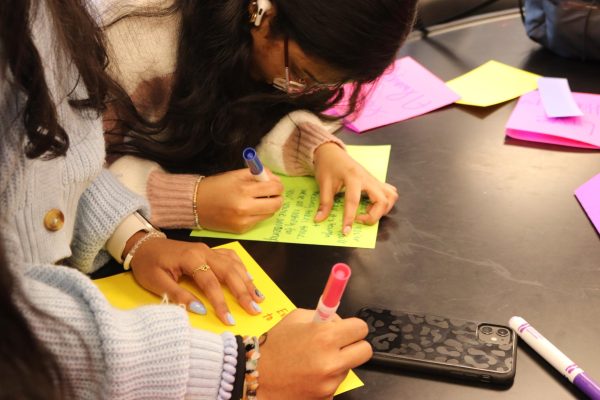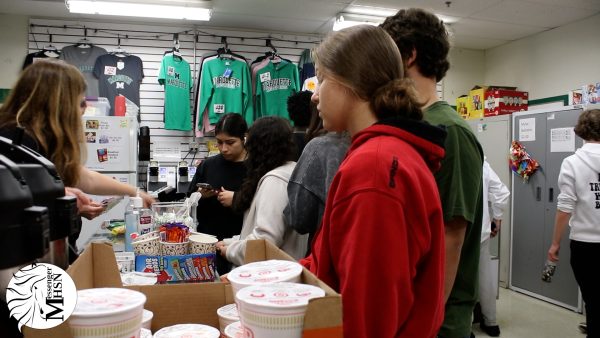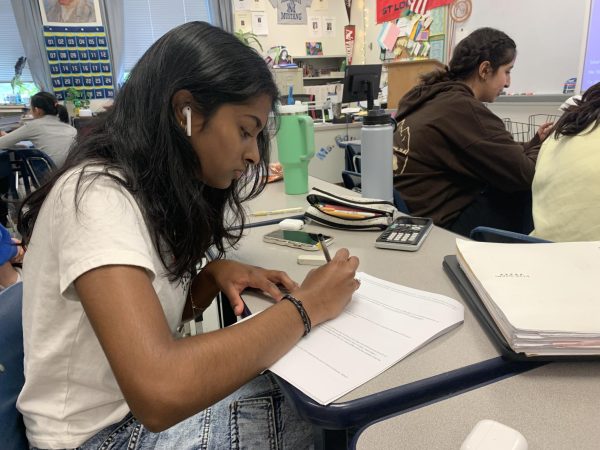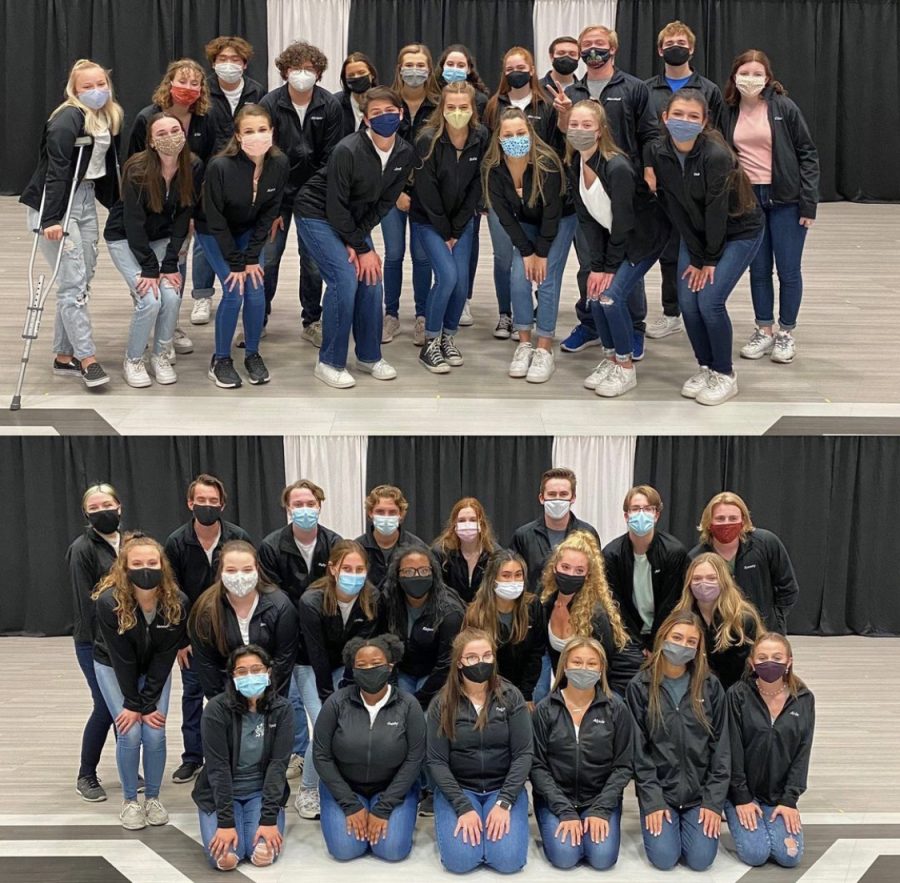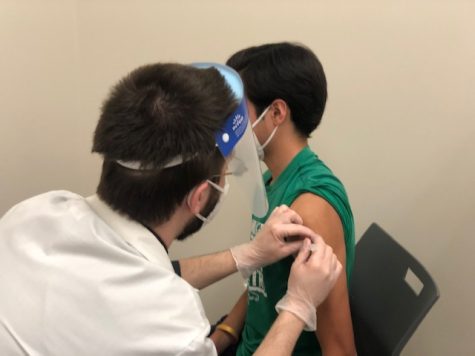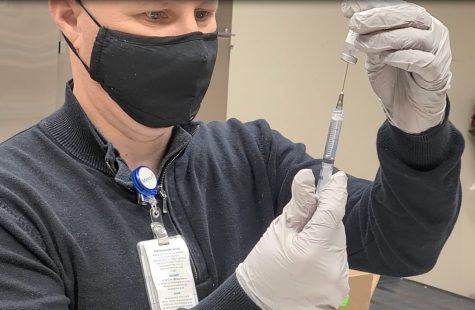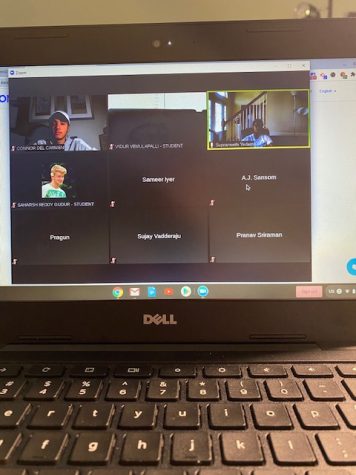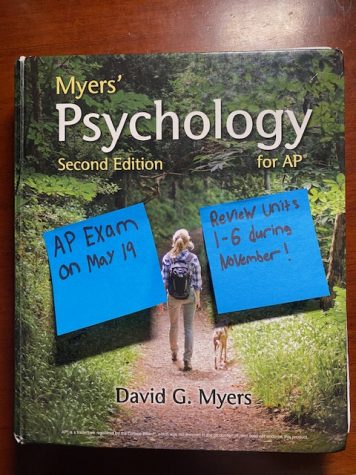Music Teachers Adapt to Challenges
Media by Jason Winter
Two groups from MHS Center Stage celebrate after a virtual performance.
At 5:15 am, while most students are still asleep, Jeffrey DiLallo, guitar teacher, can be found working in his classroom to prepare for the day ahead, which was difficult when RSD was doing all virtual learning.
“I will admit it was overwhelming at times, but somehow me and many of our colleagues muddled through,” DiLallo said. “I appreciate my colleagues and the tech personnel and administrators who helped me through that period.”
DiLallo said his current preparation for class generally consists of gathering class materials for in-person and virtual students. He also said he spends his early morning hours listening to recordings students have submitted for grading.
Now, with some students having returned to class, DiLallo is spending more time focusing on safety.
“I’m making sure to sanitize instruments for student use, making sure masks are worn properly and maintaining social distancing to prevent as many students and staff from being quarantined or infected as possible,” DiLallo said.
Throughout the music department at MHS, teachers have expressed the difficulties of conducting class with the current restrictions and class setup.
Jason Winter, choir teacher, said teaching online students at the same time as in-person students has been a challenge.
“I don’t feel like the online students seem to be as engaged, but we’ll see as some of the assessments start coming in this week,” Winter said.
I will admit it was overwhelming at times, but somehow me and many of our colleagues muddled through.
— Jeffrey DiLallo, guitar teacher
At first, Winter said he had trouble conducting rehearsals on Zoom with in person and online students. However, he fixed this by instructing the live students as they sing together while the online students sing along while muted on Zoom.
Although Winter said it’s been difficult to instruct the whole choir at once, he said this has produced some benefits.
“One of the advantages of this is that I’ve been really able to hone in on certain individuals more than I usually would,” Winter said.
Winter added that his biggest concerns are next semester when he’ll likely have more people in-person. He said it will be a big change going from 17 students in a classroom to about 40 next semester.
Christian Pierce, band teacher, said his biggest challenge has been finding ways to practice while adhering to RSD rules for choir and band classes.
The rules allow classes to sing or play socially distanced in one room for 30 minutes. The class must then leave to allow the air to clear for 20 minutes. Pierce said he’s found a way to follow these rules, yet still get in quality practice time.
“We usually play for about 30 minutes in the band room and then move to the theater and play for another 30 minutes,” Pierce said. “Usually the last 30 minutes of class is time we spend learning music theory which doesn’t require instruments.”
Pierce said he’s motivated to provide the same social experience band usually provides for many students.
“We’re fortunate to teach a class students elect to take, and one of the reasons they elect to take band is because it’s where they have close friends and feel very connected,” Pierce said. “We’ve had to be very creative with how we create those moments in online class.”
Your donation will support the student journalists of Marquette High School. Your contribution will allow us to purchase equipment and cover our annual website hosting costs. You may become a PATRON by making a donation at one of these levels: White/$30, Green/$50, Blue/$100. Patron names will be published in the print newsmagazine, on the website and once per quarter on our social media accounts.
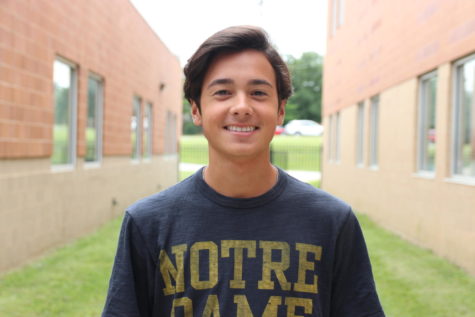
Connor Del Carmen, senior, is the Associate Editor for the Marquette Messenger. This will be his second full school year on staff. Connor also runs varsity...



